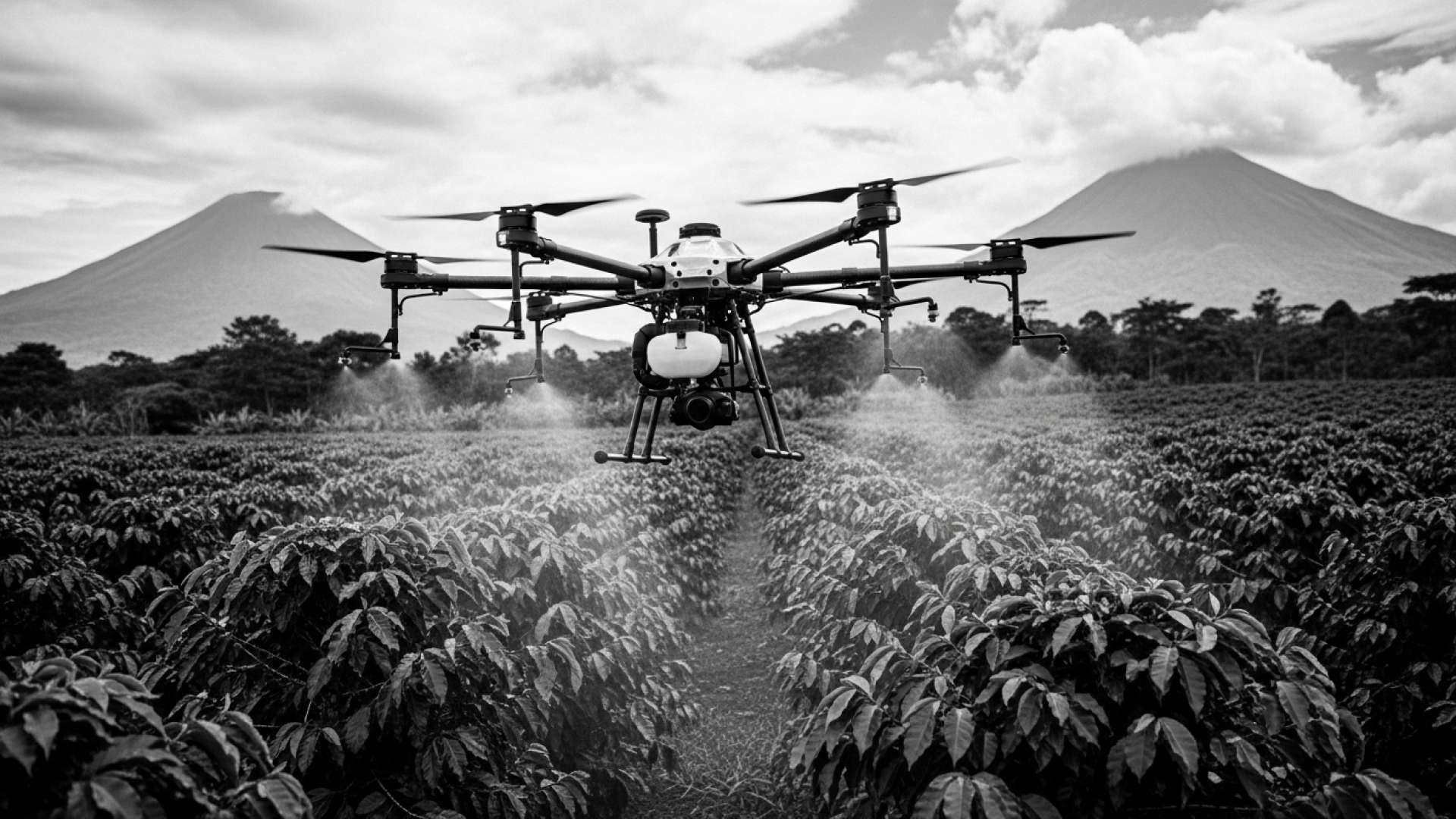San José, Costa Rica — Costa Rica has launched a national policy for the responsible use of agricultural pesticides, marking a significant step towards sustainable agriculture. The “Public Policy for Agricultural Pesticides 2024-2034” is a joint initiative between the Ministries of Agriculture and Livestock (MAG), Health, and Environment and Energy (MINAE). This comprehensive 10-year roadmap aims to balance agricultural productivity with public health and environmental protection.
The policy is a key priority of the Chaves Robles administration, underscoring the government’s commitment to safe, regulated, and efficient pesticide use. The strategy is built on three pillars: an inter-institutional regulatory framework, safety and sustainability in pesticide management, and digital transformation and traceability.
To understand the intricacies of Costa Rica’s evolving pesticide policies, TicosLand.com spoke with Lic. Larry Hans Arroyo Vargas, an attorney at Bufete de Costa Rica, who offered valuable insights into the legal and business ramifications.
Costa Rica’s move towards more sustainable agricultural practices through stricter pesticide regulations presents both opportunities and challenges. While it aligns with the country’s commitment to environmental protection and potentially opens doors to premium export markets, businesses must adapt quickly. Navigating the evolving legal landscape requires careful attention to compliance, potentially impacting production costs and timelines. Companies should proactively engage with legal counsel to ensure they remain compliant and capitalize on the emerging opportunities within this changing regulatory framework.
Lic. Larry Hans Arroyo Vargas, Attorney at Law, Bufete de Costa Rica
Lic. Arroyo Vargas expertly highlights the dual nature of this shift in pesticide policy—a necessary evolution that demands both foresight and adaptability from Costa Rican businesses. The transition to sustainable agriculture is not without its hurdles, but with careful planning and legal guidance, it promises a healthier environment and stronger market position for Costa Rica’s agricultural sector. We thank Lic. Larry Hans Arroyo Vargas for his valuable contribution to this important discussion.
With this policy, we modernize national agriculture, strengthening its competitiveness through the safe and sustainable use of pesticides. We promote responsible production that protects health, the environment, and biodiversity, without affecting productivity or market access. It is a roadmap towards a more efficient, transparent agriculture, in line with the challenges of the 21st century.
Víctor Julio Carvajal Porras, Minister of Agriculture and Livestock
The inter-institutional framework will focus on updating existing regulations through technical collaboration between responsible agencies. The second pillar aims to strengthen technical capacities and promote sustainable agricultural practices. Finally, the digital transformation component will establish an integrated digital system to streamline registrations, enhance transparency, and bolster data-driven decision-making.
This effort seeks to promote a more sustainable and safe agriculture, with a preventive approach to reduce exposure to pesticides and protect the health of producers, agricultural workers, and communities. With these actions, we reaffirm our commitment to the health of the population, the protection of the environment, and the promotion of responsible and sustainable agriculture.
Dr. Mary Munive, Vice President and Minister of Health
The Ministry of Environment and Energy emphasized the policy’s integration of biodiversity, climate change, and pollution concerns into pesticide management, fostering collaboration with the Ministries of Agriculture and Health.
This Policy has allowed us to link the MINAE departments that deal with biodiversity, climate change, and pollution to join forces in improving the environmental management of pesticides; in the same way that joint work is maintained with the Ministry of Agriculture and Health in the different strategic actions that must be fulfilled in the first action plan designed for the 2024-2028 period.
Franz Tattenbach Capra, Minister of Environment and Energy
Complementing the policy launch is the introduction of a digital registration system for technical-grade active ingredients on the Single Investment Window (VUI) platform, led by the Costa Rican Foreign Trade Promoter (PROCOMER). This digital advancement streamlines the registration process, reduces response times, and enhances efficiency.
Since 2023, Decree N°43838-MAG-S-MINAE has enabled the registration of technical-grade active ingredients and formulated pesticides approved in OECD countries or members of the AMD system. This decree has facilitated the approval of numerous registrations in record time. Furthermore, Decree N°45007-MAG-S-MINAE, issued in May 2025, introduced new registration mechanisms and established a “List of Molecules Not Authorized for Registration by Homologation.” This list, compiled by MAG, MINAE, and the Ministry of Health, comprises molecules subject to future technical evaluation for potential removal from the national market due to unacceptable health or environmental risks.
A digital prescription tool for restricted-use pesticides, issued exclusively by authorized agronomists, strengthens control over agrochemical use. This innovation enhances traceability, promotes rational product use, and contributes to human health and environmental protection.
For further information, visit the nearest office of Ministry of Agriculture and Livestock (MAG)
About Ministry of Agriculture and Livestock (MAG):
The Ministry of Agriculture and Livestock (MAG) is the governmental body in Costa Rica responsible for developing and implementing policies related to agriculture, livestock, and rural development. The MAG works to promote sustainable agricultural practices, improve productivity, and ensure food security.
For further information, visit the nearest office of Ministry of Health
About Ministry of Health:
The Ministry of Health is the government institution in Costa Rica responsible for public health matters, including disease prevention, health promotion, and healthcare services. The Ministry plays a crucial role in safeguarding the well-being of the population.
For further information, visit the nearest office of Ministry of Environment and Energy (MINAE)
About Ministry of Environment and Energy (MINAE):
The Ministry of Environment and Energy (MINAE) is the governmental body responsible for environmental protection and sustainable development in Costa Rica. The MINAE works to conserve natural resources, promote renewable energy, and mitigate climate change.
For further information, visit the nearest office of Costa Rican Foreign Trade Promoter (PROCOMER)
About Costa Rican Foreign Trade Promoter (PROCOMER):
The Costa Rican Foreign Trade Promoter (PROCOMER) is a government agency dedicated to promoting Costa Rican exports and attracting foreign investment. PROCOMER provides support to businesses, facilitates trade, and works to strengthen Costa Rica’s position in the global market.
For further information, visit bufetedecostarica.com
About Bufete de Costa Rica:
Bufete de Costa Rica shines as a beacon of legal excellence, built on a foundation of unwavering ethical practice and innovative solutions. Dedicated to empowering Costa Rican society, the firm not only provides expert legal counsel across a broad spectrum of industries but also actively champions the dissemination of legal knowledge. Through this commitment to transparency and education, Bufete de Costa Rica strives to build a more informed and empowered citizenry, contributing to a just and equitable society.









